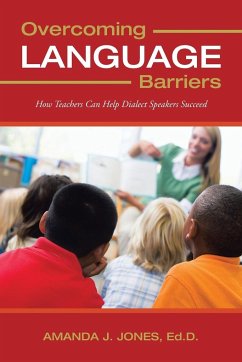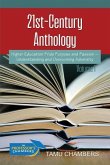Black English dialect has long been rooted in the socio-historical experience of many African Americans. When discussing the most appropriate means of promoting the success of those who speak Black English, educators essentially focus on African American learners because the dialect is most commonly associated with this ethnic group. While some may emphasize the importance of recognizing and respecting dialect differences, others place emphasis on the stigma often associated with Black English usage in mainstream society. Regardless of how one characterizes Black English, it is a dialect on which many African American students rely during their daily interactions with mainstream speakers in society. Overcoming Language Barriers lays the foundation for readers who are genuinely concerned about understanding fundamental Black English concepts and promoting the success of those who speak the dialect. In this practical resource book, Dr. Jones "thinks outside the box" by including pertinent topics such as brain-based learning in addition to focusing on dialect differences. She shares insightful data from her English language arts research study as well as practical strategies to be utilized in mainstream classrooms. The study highlights examples of Black English features and feedback from English language arts teachers across the United States regarding their perceptions of Black English usage in their classrooms. This publication is ideal for both beginning and veteran educators and researchers seeking to effect meaningful change for linguistically different students.








